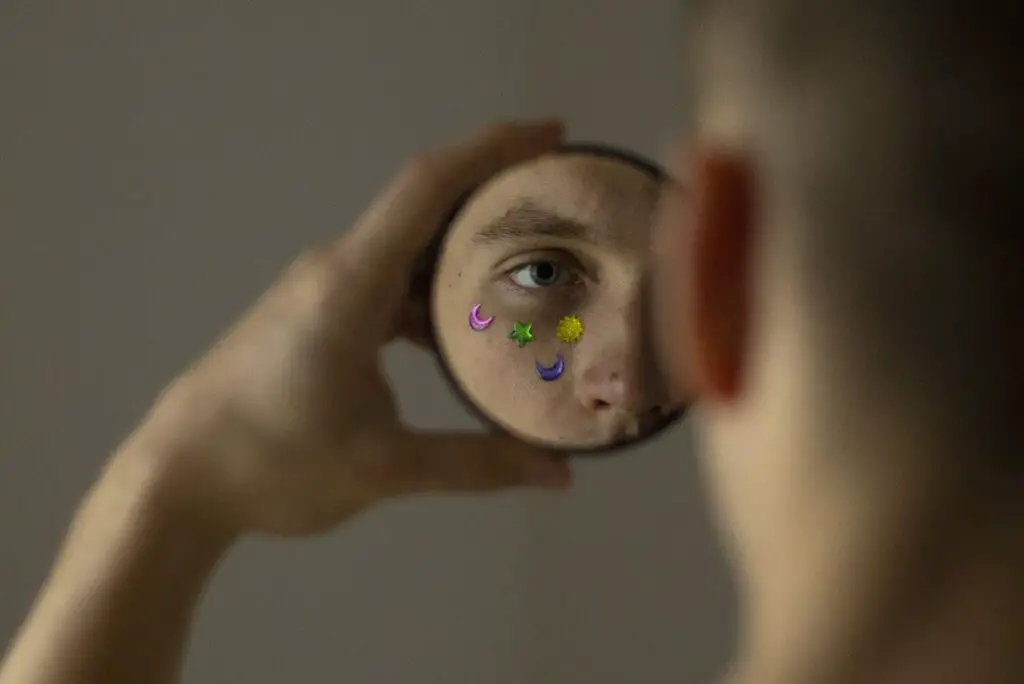Self-Identity: The Ultimate Guide to Finding Your True Self
For many people, especially those on the autism spectrum, figuring out one’s self-identity and purpose in life can be a challenging process. Autism often comes with difficulties in social communication, restricted interests, and a need for structure and routine. These traits can make self-discovery uniquely complex.
However, with some self-reflection, an open mind, and a willingness to try new things, those with autism can successfully explore their interests and determine the self-identity path that is right for them.
 Figuring out who you are and who you want in life doesn’t come easy to most, and in spite of social media claims of everyone being happy and thriving in life, it’s a challenge for everyone alive.
Figuring out who you are and who you want in life doesn’t come easy to most, and in spite of social media claims of everyone being happy and thriving in life, it’s a challenge for everyone alive.
Regardless of whether you’re neurodiverse or neurotypical, self-discovery is just a part of being human.
If you’re like me, you are both excited and nervous to be on this journey, as it will take you to new places and make you try new things so you can see what you like and don’t like.
It’s important to remember being human is an evolving process, you won’t stay the same person forever; who you are now is different than who you will be 20 years from now.
Embrace the evolution because staying stagnant is boring. It’s exciting to try new things and discover things about yourself that you had no idea about; it’s one of the joys of being human.
Change can be scary for people with autism but if you learn to embrace it you can see your life more clearly as you develop your self-identity. After all, self-discovery can be a lot of fun.
RELATED: What I Wish People Knew About Autism Adult Symptoms
Self-Identity Requires Getting to Know Yourself Deeply
The first critical step in finding yourself on your path to self-discovery is looking inward. Make time for regular and thoughtful self-reflection. Consider keeping a journal to record your thoughts, feelings, experiences, challenges and revelations.
Set aside quiet time each day to check in with yourself. Getting to know your inner world takes conscious effort but is the foundation of determining life direction.
As you reflect on your plan for strengthening your self-identity, get clear on your natural strengths, talents, needs, and interests. What activities energize you and what drains you?
Ask yourself these questions: What brings you joy and satisfaction? What are your emotional needs? What personality traits define you?
Gaining clarity in these areas is key to making decisions aligned with your true self. Be observant of patterns in your thoughts, feelings and behaviors over time. Self-identity knowledge often evolves gradually.
It’s also important to reflect on your values, which function as an inner compass guiding major life choices. What principles and qualities do you hold in high regard? Integrity, creativity, helping others and financial independence may all be important values.
Rank your top 5 values and review them when making career, relationship, and lifestyle decisions. Living aligned with your values brings a sense of meaning and fulfillment.
RELATED: Choosing Happy – How Self-Love Can Shine Above Relationships
Experiment and Explore On Your Path for Self-Discovery
Gaining self-knowledge is invaluable, but taking action by testing experiences is also critical. Move beyond your comfort zone to experiment with new activities, jobs, relationships, and environments. Be open to exploring both solitary and social interests as well as creative and conventional pursuits.
Don’t be afraid to try something that doesn’t immediately resonate. Give new experiences a fair chance before deciding they are not for you, as certain endeavors require time to feel rewarding. Approach exploration with patience and optimism.
Know ahead of time that not everything attempted will be a good fit for your self-discovery, but expanding your horizons increases self-understanding. Avoid comparing yourself to others when experimenting and don’t use autism or any neurodiversity as a reason for not being happy.
The goal is discovering activities that light you up, not meeting external expectations.
Take notes on what you enjoy, feel indifferent toward, and dislike during your exploration. Over time, patterns will emerge to reveal the types of pursuits that promote fulfillment and growth vs those that drain you. Gaining clarity into these patterns is invaluable for determining life direction.
If a new endeavor ends up not being a match, move on with the valuable knowledge gained about your needs and preferences. It’s a valuable process that can create a roadmap of a future filled with possibilities.
RELATED: Self-Awareness Examples for Personal Growth When You Have Autism
Self-Identity Means Learning Your Priorities
With greater self-knowledge comes the ability to identify your priorities in life. Unfortunately, you cannot have it all, so it’s essential to articulate what matters most to you.
Start by listing out possible priorities like financial security, intellectual challenge, artistic expression, social connection, helping others, work-life balance, etc. Then narrow the list down to your top 3-5 priorities.
Having defined priorities acts as a filter for career, relationship, and lifestyle choices. When considering a change, check in with your priorities and make sure they align. It’s a valuable toolbox for prioritizing what you “most” seek in order to live your best possible life.
For example, if being creative through art is one of your priorities but your current job doesn’t allow for that, it may be time to re-evaluate your career path.
Or if you highly value deep conversation but your partner prefers small talk, that relationship may not be ideal long-term despite other mutual interests. Defining and revisiting your priorities helps guide you toward the life that is most meaningful.
RELATED: Autism and Independence – 7 Skills That Empower Individuals to Thrive
Embrace Your Differences to Help With Self-Discovery Process

You likely have intense focus, deep analytical capability, honesty, loyalty, and a strong moral compass.
Your less filtered self-expression is a gift, even if others don’t always understand it.
Rather than viewing your differences as flaws, learn to fully embrace the ways autism makes you beautifully you. Find communities of others across the neurodiverse spectrum who have similar perspectives and experiences.
There is incredible power in being understood and accepted exactly as you are. Your differences provide value that the world needs.
Walking your own path – not the path prescribed for neurotypical individuals – will unlock your fullest potential.
RELATED: Understanding Neurodiversity – Uprising of the Neurodivergent
Seek Inspiration To Help With Self-Identity Discovery
In addition to self-reflection, it can be helpful to look outward for inspiration as you navigate your path. Identify autistic role models who are living meaningful lives in alignment with their unique talents.
What careers or lifestyles help them thrive? Reading autobiographies and connecting with mentors can provide motivation to stay true to yourself.
You may also gain insight from those across the neurodiverse spectrum like artists, scientists and philosophers who think differently.
How do they leverage their natural skills and interests to make an impact? Let the creative approaches and contributions of those who walk their own road fuel your journey of self-discovery.
RELATED: Creativity Explained – How Neurodiversity Can Fuel the Arts
Connect with Community to Grow Self-Discovery
While self-knowledge comes from within, external support is also invaluable. Sharing your experiences with others who relate helps alleviate feelings of isolation. Joining autism social and advocacy groups can provide connection with those on a similar path.
Just being your authentic self and talking through challenges amongst peers who’ve been there can make the journey less daunting.
For many, connecting online first may feel more comfortable than in-person groups. Participating in forums, social media groups and messaging boards related to autism allows you to share and gain insight remotely.
Building community in whatever format works best, even if just one trusted friend, gives strength for the road ahead. You don’t have to walk alone.
RELATED: Making A Connection – The Forgotten Joy of Finding Third Places
Evolve and Adapt with Self-Discovery
Remember that discovering your identity is not a fixed destination but an ongoing process. As you grow and change over the years, your priorities, interests and needs may shift.
Be open to your sense of self evolving as you learn more about who you are. Periodically revisit your values, skills and passions. Are there new experiences worth pursuing?
Welcome change when your current path no longer fits rather than clinging to what worked before. Adapting to shifts demonstrates resilience and commitment to matching your life with your evolving identity.
Change can be challenging but embracing necessary growth unlocks doors that allow your best self to emerge in new seasons.
Trust the process of self-discovery, even through seasons of change. As long as you stay committed to seeking community, following inspiration, exploring consciously and honoring your core self, you will uncover the identities and purpose that most give your life meaning.
Discovering one’s path requires persistence yet brings deep fulfillment.
RELATED: Break Free From These 7 Unhealthy Coping Mechanisms
Establishing A Strong Self-Identity: Trust the Process

Forgive yourself when you veer off course then redirect. Experimentation leads to detours, changes in priorities, and periods of uncertainty. That is all part of the journey.
You may even feel you found your niche only to later need to adapt and evolve as life circumstances change. Trust that as long as you commit to knowing yourself deeply, expanding your horizons, identifying your priorities and embracing your neurodiversity, you will uncover the most fulfilling direction.
Have faith that the process, while often challenging, will help guide you to the right life. You’ve got this!
Figuring out who you are and want to be takes dedicated self-reflection, being willing to try new experiences, identifying your priorities in life, and fully embracing your neurodiversity and unique gifts.
With this comprehensive approach, those on the autism spectrum can gain clarity on their interests, strengths, needs and values to determine the path that is truly right for them. The self-identity journey requires effort but leads to a deeply rewarding life.
RELATED: Hope for the Future – Will It Transform the Autism World?
If you enjoyed this article, here are more blogs related to defining who you are as a person and living your best life.
Autism in Adults: Defining Who You Are in Today’s World
- Dangers of Social Media Addiction – How To Leave the Screens and Face the Real World
- Autism Disclosure: Is Revealing Your Disorder Helpful or Hurtful
- Are You An Adult With Autism? Here Are 6 Signs
- Chinese New Year 2024: Celebrate Renewed Hope
- Mastering Your Mind: Discover the Secrets of Stoicism Philosophy
- 14 Practical Ways for Staying Motivated to Unlock Full Potential
- The Fascination Explanation for Spoon Theory Mental Health
- The Truth About Autism’s Lack of Empathy Disorder Needs to Be Told
- What I Wish People Knew About Autism Adult Symptoms